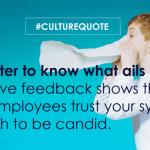FOOD FRAUD
In September, 2015, for the first time ever, a business executive was convicted of a felony for food poisoning resulting from tainted products. In previous food poisoning cases, defendants could argue the problems were unintentional or, at worst, due to “mere” negligence.
But Peanut Corporation of America CEO Stewart Parnell and two of his colleagues were found to have purposely covered up failed or incomplete salmonella testing for over five years, starting in 2003, shipping potentially tainted peanut butter nationwide. Customers included schools, hospitals, long-term care facilities, universities, restaurants, bakeries, the military, and major manufacturers of retail food products. In 2007, over 700 cases of illness and nine deaths were linked to their salmonella-tainted products.
Not surprisingly, the case made national news, highlighted by Parnell’s infamous “Just ship it” email about an overdue order that would be delayed again if they waited for the results of salmonella testing.
WHO FAILED?
PCA was not only a corporate failure, it was a regulatory failure. Reviews of PCA’s quality from food giants such as Nestle (who rejected PCA as a supplier) and Kellogg (who lost $65 million due to product recalls) were far more rigorous than anything that the government ever required. In fact, throughout the sordid tale, Stewart Parnell was actually a member of the Department of Agriculture’s Peanut Standards Board!
LESSONS FOR LEADERS
What are the take-aways for leaders who wish to avoid similar scandal? I’ve identified four:
Responsibility. Leadership is not just about power, status, wealth, and freedom. True leadership requires taking responsibility. Stewart Parnell convinced himself that money came first and justified all of the compromises PCA made. It might be possible to create great value without taking on much responsibility, but it is not likely. Real leaders embrace their fundamental responsibilities and recognize that those are essential to creating value and delivering it.
Character and Compliance. Our colleague Jon Marten, CFO of the engineering firm Parker-Hannifin says, “You can’t spend enough money on compliance to make up for a lack of character.” PCA’s Parnell wasn’t even required by law to test for salmonella. But he did, and PCA falsified the results. That’s not a lack of compliance, it’s a lack of character.
Leading in a Complex and Evolving Industry. With suppliers providing ingredients for hundreds of thousands of consumer products on a global scale, many organizations outsource the quality and safety audit process. As quality guru W. Edwards Deming said years ago, “A process left unchecked is doomed to fail.” Beyond just the technical aspects of safety, it may also help to take a look at a supplier’s organization and culture to ensure that an adequate safety culture is in place.
Your Culture is Your Business. We sometimes encounter leaders who are reluctant to take “culture” seriously. They often want to focus their attention on the “business” and assume that if they get that in good shape that a positive culture will follow. But our experience shows that it’s very hard to succeed that way. It’s hard to get the business right without paying attention to the culture.
CUSTOMERS AND VENDORS
Not only can you scrutinize your own organization’s compliance standards, you can monitor the standards of your suppliers. Lapses in compliance or ethical behavior aren’t really that hard to find if you want to find them. For example, Nestle did not approve PCA as a supplier because PCA twice failed to meet Nestle’s safety inspection standards.
Perhaps the next step in corporate responsibility is to observe your suppliers’ corporate cultures, not just their price sheets. This is a discussion worth having.
This post is adapted from the article “Is it Safe to Eat a Peanut Butter Sandwich?” by Daniel Denison (Denison Consulting, USA) and Lone Jesperson (Cultivate Food Safety, Switzerland). Download the full Transform article here.



